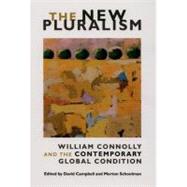- ISBN: 9780822342700 | 0822342707
- Cover: Paperback
- Copyright: 4/30/2008
William E. Connolly, one of the best known and most important political theorists writing today, is a principal architect of the "new pluralism." In this volume, leading thinkers in contemporary political theory and international relations provide a comprehensive investigation of the new pluralism, Connolly's contributions to it, and its influence on the fields of political theory and international relations. Together they trace the evolution of Connolly's ideas, illuminating his challenges to the "old," conventional pluralist theory dominating American and British political science and sociology in the second half of the twentieth century.The contributors show how Connolly has continually revised his ideas about pluralism to take into account radical changes in global politics, incorporate new theories of cognition, and reflect on the centrality of religion in political conflict. They engage his arguments for an agonistic democracy in which all fundamentalisms become the objects of politicization, so that differences are not just tolerated but are productive of debate and the creative source of a politics of becoming. They also explore the implications of his work, often challenging his views to widen the reach of even his most recently developed theories. Connolly's new pluralism will provoke all citizens who refuse to subordinate their thinking to the regimes in which they reside, to religious authorities tied to the state, or to corporate interests tied to either. The New Pluralism concludes with an interview with Connolly in which he reflects on the evolution of his ideas and expands on his current work.







